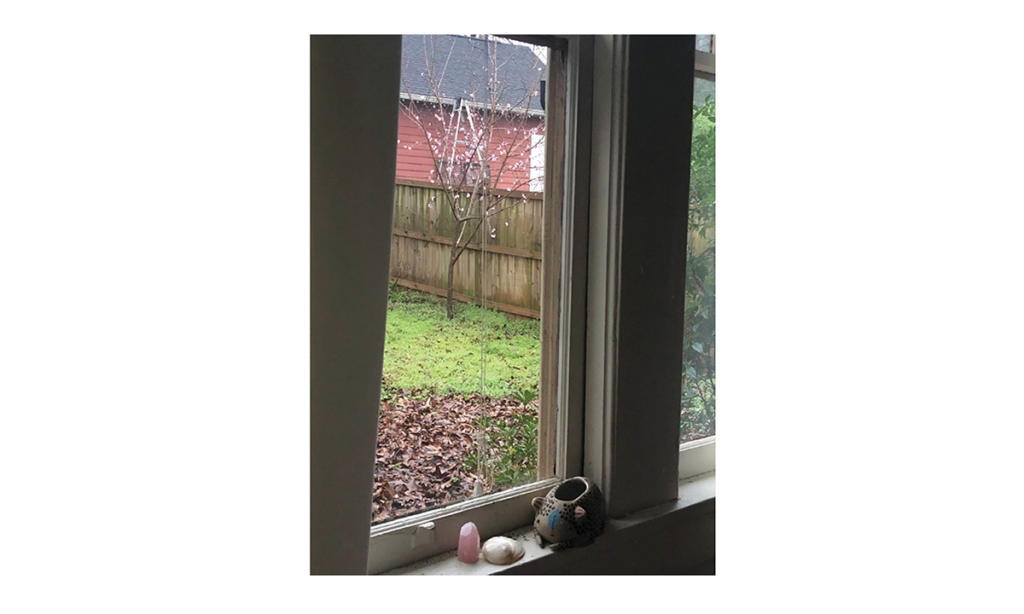If you are contemplating self-destruction, please tell someone you trust. Immediate counseling is available 24-7 by dialing 1-800-SUICIDE or 988.
A Sunday afternoon in early spring. We’d spent the morning quiet, in separate rooms—me in my office, writing; Molly on the bed in the guest room, working too, so I believed. I’d pass by and see her using her laptop or reading from the books piled on the bed where she lay prone, or sometimes staring off out through the window to the yard. It was warm for March already, full of the kind of color through which you can begin to see the blooming world emerge. Molly didn’t want to talk really, clearly feeling extremely down again, and still I tried to hug her, leaning over the bed to wrap my arms around her shoulders as best I could. She brushed me off a bit, letting me hold her but not really responding. I let her be—it’d been a long winter, coming off what felt like the hardest year in both our lives, to the point we’d both begun to wonder if, not when, the struggle would ever slow. I wished there could be something I might say to lift her spirits for a minute, but I also knew how much she loathed most any stroke of optimism or blind hope, each more offensive than the woe alone. Later, though, while passing in the hallway in the dark, she slipped her arms around me at the waist and drew me close. She told me that she loved me, almost a whisper, tender, small in my arms. I told her I loved her too, and we held each other standing still, a clutch of limbs. I put my head in her hair and looked beyond on through the bathroom where half-muted light pressed at the window as through a tarp. When we let go, she slipped out neatly, no further words, and back to bed. The house was still, very little sound besides our motion. After another while spent working, I came back and asked if she’d come out with me to the yard to see the chickens, one of our favorite ways to pass the time. Outside, it was sodden, lots of rain lately, and the birds were restless, eager to rush out of their run and hunt for bugs. Molly said no, she didn’t want to go, asked if I’d bring one to the bedroom window so she could see—something I often did so many days, an easy way to make her smile. I scooped up Woosh, our Polish hen, my favorite, and brought her over to the glass where Molly sat. This time, though, when I approached the window, Molly didn’t move toward us, open the window, as she would usually. Even as I smiled and waved, holding Woosh up close against the glass, speaking for her in the hen-voice that I’d made up, Molly’s mouth held clamped, her eyes like dents obscured against the glare across the dimness of the room. Woosh began to wriggle, wanting down. The other birds were ranging freely, unattended—which always made me nervous now, as in recent months a hawk had taken favor to our area, often reappearing in lurking circles overhead, waiting for the right time to swoop down and make a meal out of our pets. So I didn’t linger for too long at the window, antsy anyway to get on and go for my daily run around the neighborhood, one of the few reasons I still had for getting out of the house. I gripped Woosh by her leg and made it wave, a little goodbye, then hurried on, leaving Molly staring blankly at the space where I’d just been: a view of a fence obscured only by the lone sapling she’d planted last spring in yearning for the day she wouldn’t have to see the neighbors.
***





